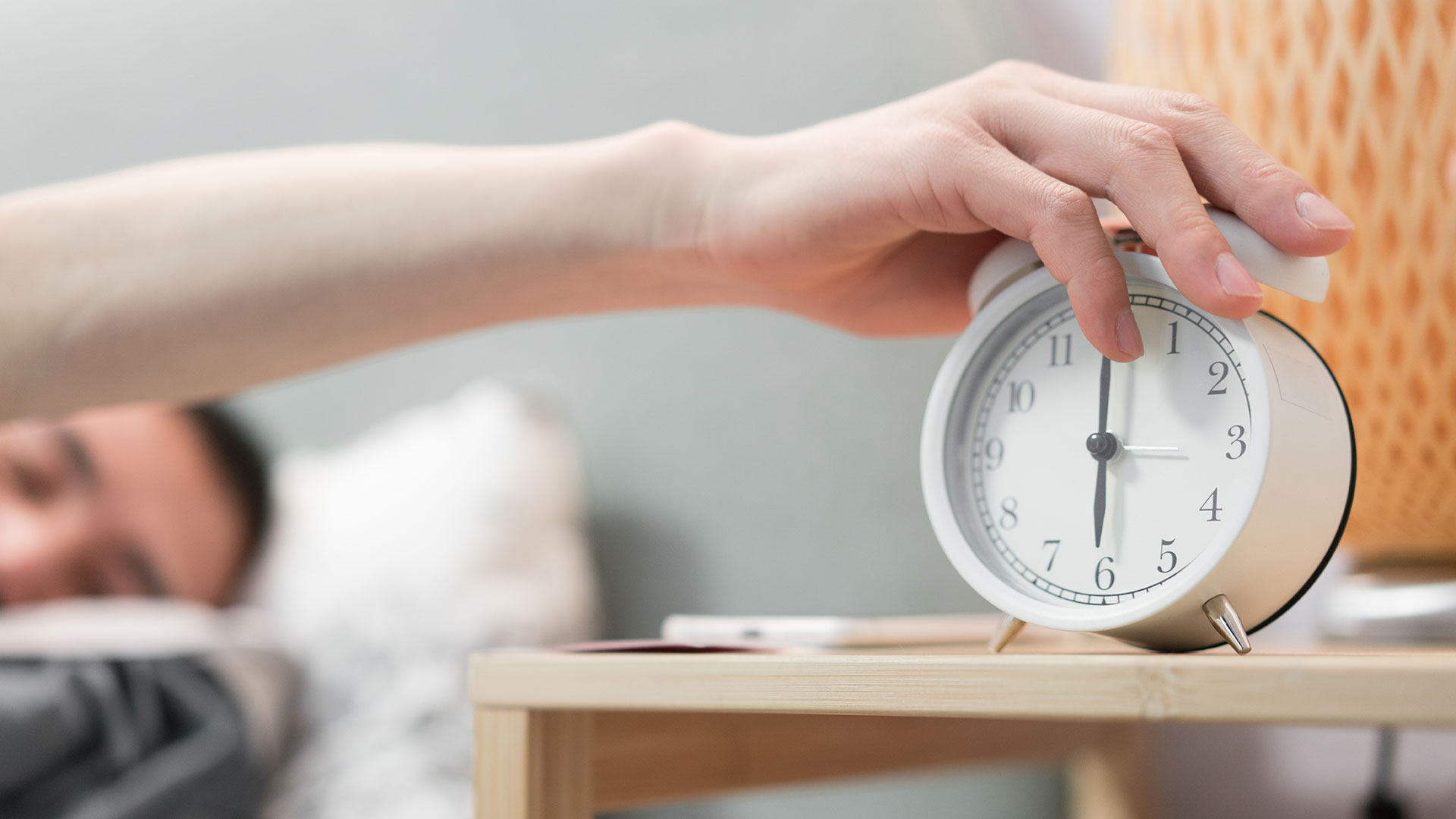A BEEP alarm makes you feel groggy in the mornings – try this instead
This is the alarm you should go for if you want to feel energised in the mornings, according to science


Starting your morning feeling alert and ready to get started with the day can be a struggle. Apparently, the alarm sound you choose can have an impact on your grogginess levels; if you want to fend off feelings of sleepiness, you should pick a melodic alarm sound, rather than a traditional, jarring beep – and there's research to prove it.
Some people find that the gently brightening light of a wake-up light, which is designed to mimic sunrise, is the most effective way to get up in the mornings, but if you've got a traditional alarm clock or are using your phone, this is an easy hack that could help. T3 caught up with research lead Stuart McFarlane to hear about the behind science it all.
In an initial study, participants who used alarms that carry a tune reported less grogginess ('sleep inertia') than those using the traditional beeping alarm sound. A second study, the scientists designed their own melodic alarm, and tested that against a beeping one. The findings matched the results of the first study – those using a tuneful alarm experienced improved alertness upon waking, and afterwards.
What's wrong with a beeping alarm?
The reason a beep leaves you feeling groggy is all to do with how much the sound challenges your brain, apparently. "Humans love melody and are quite good at interpreting them – but to do so requires the brain to activate more resources such as memory and attention," says Stuart. "Single note alarms that do not carry a tune are less challenging for the brain to interpret, and thus do not encourage as much of the brain resources."
How does a tuneful alarm wake you up?
It's all to do with how your brain processes sound, says Stuart. Audio can influence how your brain focuses resources that can counteract waking grogginess, for example attention and memory.
"The brain regions important for alert performance (the prefrontal cortical regions) take longer to 'start-up' than other areas (such as the basal ganglia) which are important for arousal," he explains. "This means you can be awake, but not fully alert."
Because blood flow in the brain has also been shown to be diminished after waking (compared to the pre-sleep state), to achieve alert wakefulness, we might need to find ways to encourage a redistribution of blood flow to the brain. Certain types of sound can achieve this.
Get all the latest news, reviews, deals and buying guides on gorgeous tech, home and active products from the T3 experts
What's the perfect alarm sound?
Stuart has developed an experimental alarm sound entitled Dawn Birds Deliberate. Based on what we know so far, it should be ideal to promote wakefulness in the morning. You can listen to it below.
To achieve this, the design uses a "longer phrase length to afford musical narrative", as well as a call and response sequence – thought to be a shared trait between humans and many bird species. "The alarm is imagined as a conversation between two dawn birds deliberating the beautiful sunrise and the day to come," says Stuart. "To complement the functional musical elements (tempo, frequency, timbre, melodic contour, expectation etc), the user may also prime themselves with a pleasant narrative prior to awakening, thus relieving anxious feelings and shock that has been associated to some harsh sounding 'beep beep beep' alarms."
That sequence isn't going to be available on your phone library, so what key features should you look for in an alarm sound? Evidence shows that an alarm with dominant frequencies around 500 hertz – or near to the key of C5 – are the ideal. Stuart also suggests looking for a melody you can easily sing or hum along to, and one that's not too fast or too slow (100 – 120 beats per minute is ideal). Finally, make sure it's loud enough to effectively wake you. Younger people (or particularly deep sleepers) typically need louder alarms than older people, assuming no hearing impairments.

Ruth was T3's Outdoors and Wellness Editor from 2020 to 2022, covering hiking, camping and adventure sports kit, as well as mattresses, sleep accessories, yoga and general wellness. She's now a Homes Editor at sister site TechRadar, where she deals in all things air (vacuum cleaners, robovacs, fans and air purifiers), and hair (hair dryers, straighteners and stylers).